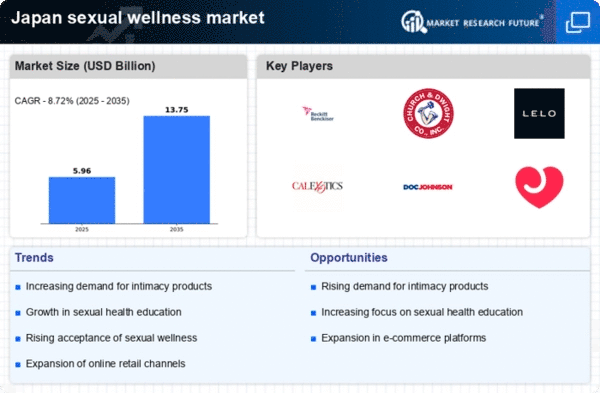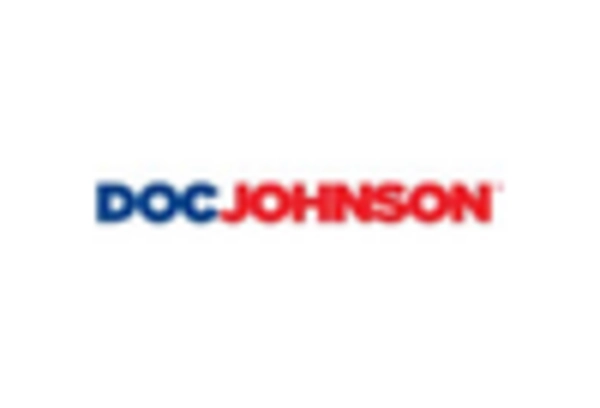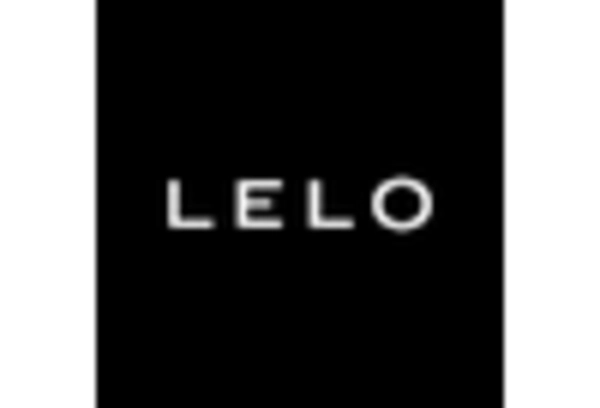Increased Focus on Sexual Education
The emphasis on sexual education in Japan is emerging as a vital driver for the sexual wellness market. Educational initiatives aimed at improving knowledge about sexual health and wellness are becoming more prevalent in schools and communities. Reports indicate that around 70% of young adults express a desire for more comprehensive sexual education. This increased focus on education is likely to lead to higher demand for sexual wellness products, as informed consumers are more inclined to seek out solutions that enhance their sexual health. The sexual wellness market stands to gain from this trend, as educational programs can foster a more informed consumer base, ultimately driving sales and product innovation.
Influence of Social Media and Influencers
The influence of social media and online influencers is significantly impacting the sexual wellness market in Japan. Platforms such as Instagram and TikTok are increasingly being used to promote sexual wellness products and educate consumers. Influencers who advocate for sexual health and wellness are reaching a broad audience, particularly among younger demographics. Data indicates that approximately 40% of consumers are influenced by social media recommendations when purchasing sexual wellness products. This trend suggests that brands leveraging social media marketing strategies may experience increased visibility and sales. The sexual wellness market is likely to evolve as companies collaborate with influencers to create authentic connections with consumers, ultimately driving growth.
Rising Demand for Discreet Shopping Options
The demand for discreet shopping options is becoming increasingly relevant in Japan's sexual wellness market. Many consumers prefer to purchase sexual wellness products in a private and secure manner, which has led to the growth of online shopping platforms and discreet packaging solutions. Approximately 55% of consumers indicate that they would be more likely to purchase sexual wellness products if they could do so without the fear of judgment. This trend suggests that businesses focusing on privacy and discretion may capture a larger share of the market. The sexual wellness market is likely to see a rise in e-commerce solutions that prioritize customer confidentiality, thereby enhancing overall consumer satisfaction.
Growing Acceptance of Sexual Wellness Products
The increasing acceptance of sexual wellness products in Japan appears to be a significant driver for the sexual wellness market. Cultural shifts towards more open discussions about sexual health and intimacy have contributed to this trend. Surveys indicate that approximately 60% of Japanese adults are now more comfortable purchasing sexual wellness products compared to previous years. This growing acceptance is likely to enhance market visibility and encourage new consumers to explore various products, thereby expanding the customer base. The sexual wellness market is witnessing a transformation as traditional stigmas diminish, allowing for a broader range of products to be marketed and sold. As a result, companies are likely to invest more in advertising and product development to cater to this evolving consumer mindset.
Technological Advancements in Product Development
Technological advancements are playing a crucial role in shaping the sexual wellness market. Innovations in product design and manufacturing processes have led to the creation of more effective and user-friendly products. For instance, the introduction of smart devices and apps that enhance sexual experiences is gaining traction among consumers. Data suggests that the market for technologically integrated sexual wellness products could grow by approximately 25% over the next five years. This trend indicates a shift towards personalized experiences, which may attract a younger demographic. The sexual wellness market is likely to benefit from these advancements, as companies that embrace technology can differentiate themselves and meet the evolving needs of consumers.
















